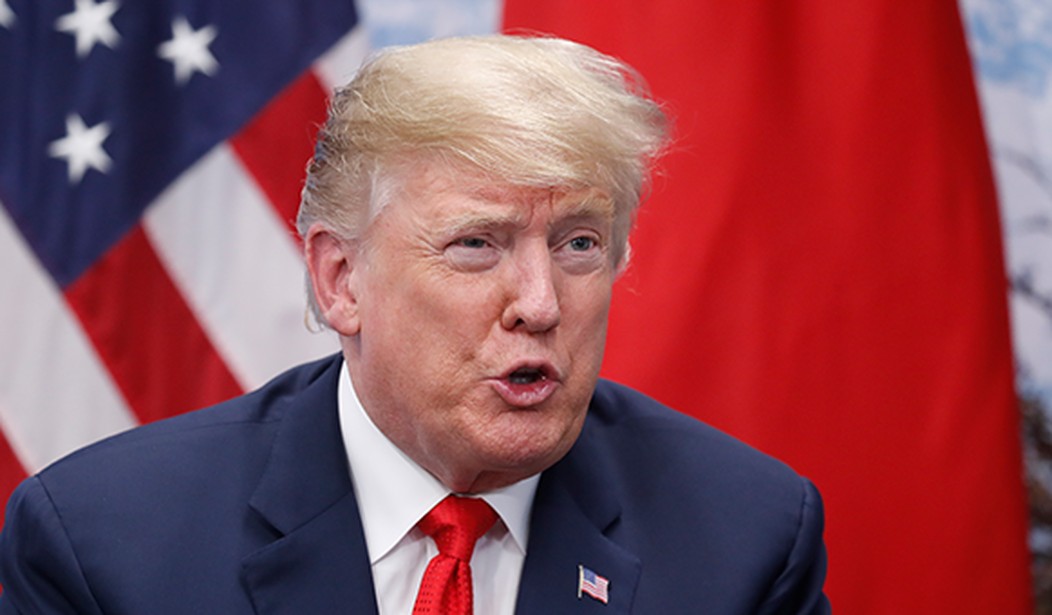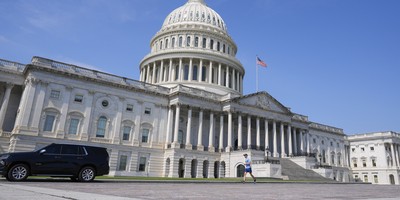Prosecutors investigating President Trump made big news recently, but it wasn't about Russia. Rather, in their sentencing recommendation for fixer Michael Cohen, lawyers with the U.S. Attorney's Office for the Southern District of New York wrote that in the final weeks of the 2016 campaign, candidate Trump directed Cohen to pay off Stormy Daniels and Karen McDougal, who wanted money to keep quiet about sexual dalliances. While such arrangements are legal, prosecutors argued that since the payoffs occurred during the campaign, they were violations of campaign finance laws.
Cohen, who is cooperating because prosecutors nailed him for tax evasion and bank fraud in his private business, pleaded guilty to two felony campaign finance violations. So no one has to talk about an "alleged" campaign finance scheme; there's already a guilty plea. But what was really significant about the sentencing memo was that prosecutors specifically said Trump told Cohen to do it.
"With respect to both payments, Cohen acted with the intent to influence the 2016 presidential election," prosecutors said. "He acted in coordination with and at the direction of (Trump)."
Those words caused a sudden shift in the debate over investigating the president. What had been a two-year-long conversation about Trump and Russia instantly became a conversation about Trump and campaign finance.
"Prosecutors are now implicating the president in at least two felonies," said CNN.
"Federal prosecutors in New York say that President Trump directed Michael Cohen to commit two felonies," said NBC's Chuck Todd.
"At least two felonies," said Democratic Sen. Chris Murphy of Connecticut.
"Implicated in two felonies," said anti-Trump gadfly George Conway, husband of top Trump adviser Kellyanne Conway.
And so on.
"There's a very real prospect that on the day Donald Trump leaves office, the Justice Department may indict him, that he may be the first president in quite some time to face the real prospect of jail time," said Democratic Rep. Adam Schiff, who will become chairman of the House Intelligence Committee next month.
Recommended
Jerrold Nadler, the Democrat who will chair the House Judiciary Committee, said the campaign finance charges "would be impeachable offenses because, even though they were committed before the president became president, they were committed in the service of fraudulently obtaining the office." Nadler said he has still not determined whether the charges, even though they could be the basis for impeachment, are important enough to actually go forward, at least yet.
Nadler's public caution is understandable; his committee will have the responsibility of starting the impeachment process, if that is what Democratic leaders decide. But the fact is, a number of Democrats clearly believe they already have enough evidence to impeach.
One significant problem could be that the campaign finance charge against the president is a pretty iffy case. Back in 2010, the Justice Department accused 2008 presidential candidate John Edwards of a similar scheme -- an alleged campaign finance violation based on a payoff to a woman with whom Edwards had had an affair (and a child).
Edwards said he arranged the payment to save his reputation and hide the affair from his wife. The Justice Department said it was to influence the outcome of a presidential election.
The New York Times called the Edwards indictment "a case that had no precedent." Noting that campaign finance law is "ever changing," the paper said the Edwards case came down to one question: "Were the donations for the sole purpose of influencing the campaign or merely one purpose?"
The Justice Department failed miserably at trial. Edwards was acquitted on one count, while the jury deadlocked -- in Edwards' favor -- on the others. Prosecutors opted not to try again.
President Trump would point out that the accusation against him differs in at least one key respect from Edwards. Prosecutors accused Edwards of raising donor money to pay off the woman. Trump used his own money, which even the byzantine and restrictive campaign finance laws give candidates a lot of freedom to use in unlimited amounts.
So even more than Edwards, if the Justice Department pursued a case against Trump, it would be on unprecedented grounds.
But the political reality is, it doesn't really matter if it is a weak case. And it doesn't matter if Trump himself has not been indicted, or even that a sitting president cannot be indicted. Because now, Democrats can say, "The Justice Department has implicated the president in two felonies. Two felonies. TWO FELONIES!"
Politically, that's as good as an indictment of Trump -- perhaps even better, since it does not give the president a forum to make a proper legal defense.
The last few days have seen a big pivot in the campaign against Donald Trump. For two-plus years, it was Russia, Russia, Russia. But despite various revelations in the Russia probe, the case for collusion remains as sketchy as ever. Now, though, prosecutors in the Southern District of New York have given Democrats a new weapon against the president. Look for them to use it.
Byron York is chief political correspondent for The Washington Examiner.























Join the conversation as a VIP Member